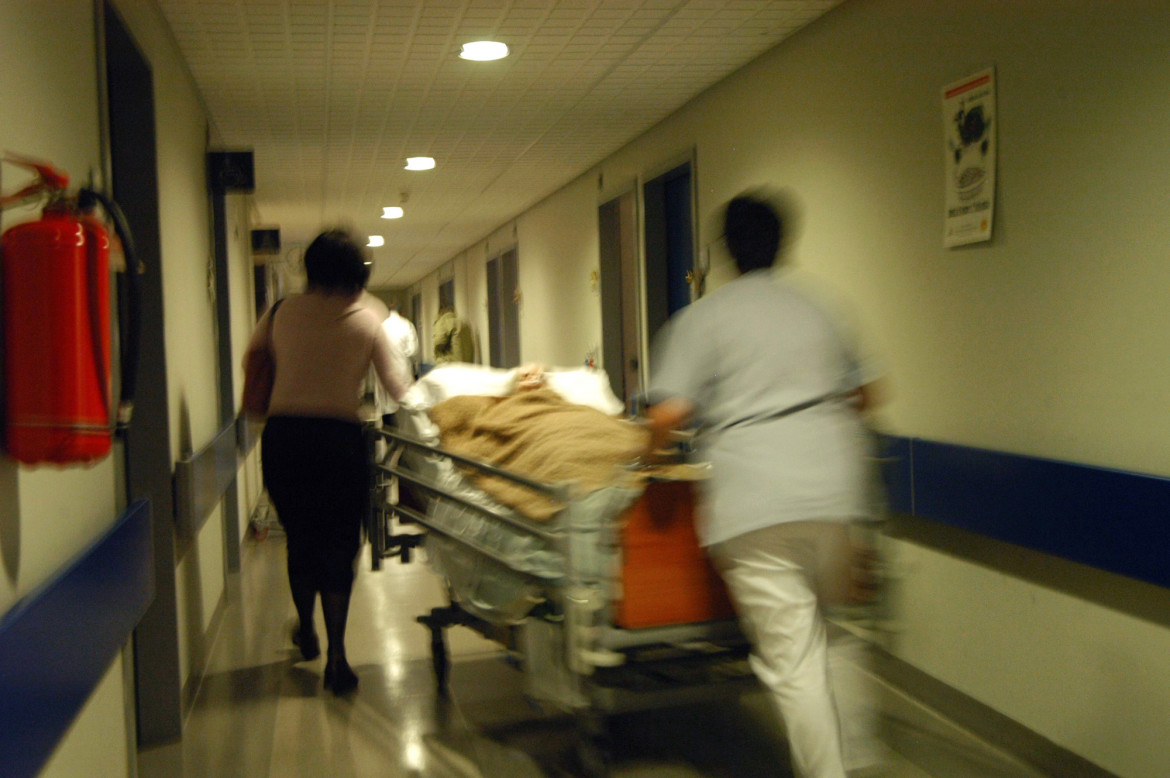Commentary
The right to health is unavoidable, unless you’re the Italian Democratic Party
After the pandemic, the governance of sustainability cannot be separated from innovation and the need to reform health systems, knowing full well that there is no point in reforming except as part of an investment policy.

As chance would have it, while the PD was holding its summit on health care in Rome – where it dismissed the issue of sustainability, reducing it to a simple problem of increased spending – in Stockholm, the Health Summit 2022 was being held at the Karolinska Institutet, and in Toronto, Canada, the Partnership for Health System Sustainability and Resilience (PHSSR) was being launched.
Before that, the same issue had been addressed in Davos, the Mecca of capitalism, which had organized a specific session on the subject of the pandemic, “Collaborating to Build Resilient and Sustainable Health Systems”; and also by the usual London School of Economics, which also took part in setting up the Partnership for Health System Sustainability and Resilience.
In short, all over the world, the post-pandemic discussion on sustainability has opened up – very much unlike at the PD’s summit.
Apart from the concepts of resilience, innovation and reform, the notion that dominates over everything else is that of sustainability. Across the world, the concept of sustainability is no longer reducible, as the PD proposes, to the spending/GDP ratio alone.
For everyone else, the strategic goal is to initiate a real “transition to greater sustainability,” but with a powerful and significant political innovation that it would be unforgivable to ignore: now, after the pandemic, the idea of sustainability is thought of not only as a cost that the economy must bear, but as an investment and an opportunity for the whole system.
Nowadays, after the pandemic, the governance of sustainability cannot be separated from innovation and the need to reform health systems, knowing full well that there is no point in reforming except as part of an investment policy. But above all, the real novelty today is that you cannot talk about sustainability without talking about health. All over the world, it has been understood that sustainability now comes through the development of rights, of primary health, of the environment, as well as strengthening systems of care. A lesson that has completely gone over the head of Speranza’s Recovery and Resilience Plan, as well as the PD, which, on the contrary, is taking us back to the old commonplaces of the prevention departments of the past.
So I will not repeat what I have already written in this newspaper about sustainability understood as the production of health and wealth, on the occasion offered to us by the recent constitutional amendments to safeguard health through the extension of the right to health to the right to the environment.
I understand the bewilderment of the PD, which today is faced with denouncing its own mistaken policies, which in the name of an absurd as well as unscrupulous neoliberal compatibilism pushed the interpretation of Article 32 of the Constitution backwards, thus opening up to the private sector and forcing rights to adapt to the availability of resources.
Today, after the pandemic, the whole world is becoming convinced that the time has come to do exactly the opposite, that is to demand from the economy that it should come to terms with the irreducible right to health, now extended to the environment and ecosystems.
In the late 1990s, then-Health Minister Bindi called into question market practices on the grounds of sustainability, thus recognizing a wholly improper role to the private sector as guarantor of sustainability. Now, in post-pandemic times, the whole world is telling us that this is not the right way to go. But here in Italy there is not an inkling of self-criticism to be seen; on the contrary, we carry on as if nothing had happened. This stubbornness to go on the same old path today is likely to prove lethal to the public system.
What is likely to happen if the PD, instead of changing policy, goes ahead with its idea of sustainability without sustainability? It could end up more or less like this: the RRP will not succeed in removing the contradictions that are undermining public health care, and therefore all the contradictions in the system will remain in effect, including privatization; the unresolved contradictions will worsen the issue of the financial needs of health care beyond all measure, and health care without reform will cost more and more but without yielding any meaningful social benefit in return.
The PD and Art 1 will still fight, for electoral reasons, to increase health care spending in relation to GDP, but the Finance Ministry will say that without reform health care has become “unsustainable” and that the economic crisis is such that no more money can be given.
At this point, PD/Art 1 will propose resorting to the ESM (the state rescue fund) – that is, they will borrow money from Europe.
Thus the PD’s neoliberal dream will come true, and again, just like half a century ago, health care will collapse under the weight of its debts.
Originally published at https://ilmanifesto.it/il-vicolo-cieco-della-sostenibilita-che-porta-dritti-al-mes on 2022-06-30
